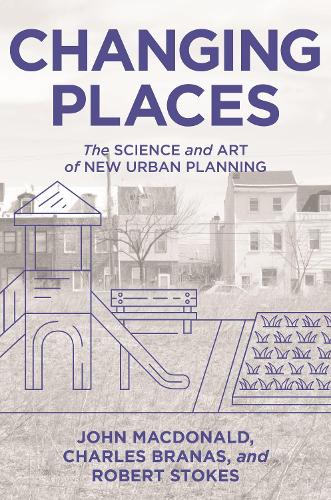
Changing Places: The Science and Art of New Urban Planning
(Paperback)
Available Formats
Publishing Details
Changing Places: The Science and Art of New Urban Planning
By (Author) John MacDonald
By (author) Charles Branas
By (author) Robert Stokes
Princeton University Press
Princeton University Press
16th August 2022
United States
Classifications
Tertiary Education
Non Fiction
City and town planning: architectural aspects
Crime and criminology
307.1216
Physical Properties
Paperback
210
Width 156mm, Height 235mm
Description
How the science of urban planning can make our cities healthier, safer, and more livable The design of every aspect of the urban landscape-from streets and sidewalks to green spaces, mass transit, and housing-fundamentally influences the health and safety of the communities who live there. It can affect people's stress levels and determine wheth
Reviews
"Winner of the James Short Senior Scholar Award, Communities and Place Division of the American Society of Criminology"
"A great, bracing read for us cultural theorists: the authors really interrogate what evidence means in a complex ecosystem such as a city, as well as what you do with it. The case studies in the rest of the book show off examples of evidence-led interventions, all with apparently proven social benefits: they include large-scale tree planting for health in Philadelphia, light rail ridership fighting obesity in Charlotte and the use of signs in LA parks to make people exercise. The message is a simple one: with the right evidence base, you can make meaningful changes. Like Londons cholera in 1854, you can cure a city of its social ills."---Richard J. Williams, Times Higher Education
Author Bio
John MacDonald is professor of criminology and sociology at the University of Pennsylvania. Charles Branas is the Gelman Professor and chair of the Department of Epidemiology at Columbia University. Robert Stokes is associate professor and chair of the Master of Public Policy Program in the School of Public Service at DePaul University.
